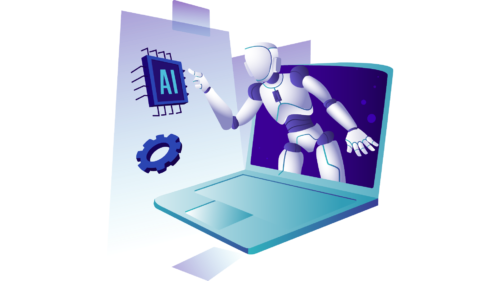
Integrating Artificial Intelligence (AI) in Human Resources (HR) processes has redefined how organizations manage their workforce. From recruitment and employee engagement to performance evaluation, AI has become an indispensable tool. However, as AI becomes more popular in HR, ethical considerations have emerged, demanding careful utilization to ensure fair practices. In this blog, we will delve into the ethical considerations of AI-driven HR processes, exploring the challenges and potential solutions.
Six Ethical Considerations of AI-Driven HR Processes
Bias and Fairness in Hiring
One of the primary ethical concerns in AI-driven HR processes is the potential for bias. Artificial Intelligence systems learn from historical data, and if that data reflects past biases or discrimination, the AI models can memorize and perpetuate these issues. For example, biased algorithms in recruitment processes may inadvertently favor certain demographics, leading to the underrepresentation of diverse talent.
Bias mitigation can be addressed through multiple approaches. HR professionals must ensure that the training data used to develop AI models is diverse and representative. Employers must ensure regular audits and evaluations of AI systems to identify and rectify biases. Additionally, organizations should implement transparency in their AI algorithms, providing insights into how decisions are made to promote trust among employees.
Ensuring Data Privacy and Security
AI-driven HR processes often involve collecting and analyzing vast amounts of personal data. Ensuring the privacy and security of this information is crucial to maintaining trust between employees and employers. Ethical concerns arise when employees feel that their data is being used in ways that infringe upon their privacy rights.
To address this, organizations must adhere to robust data protection regulations and communicate clearly with employees about the purpose and scope of data collection. Implementing anonymization techniques and encryption measures can further safeguard sensitive information. Transparency in data usage policies is paramount, ensuring that employees are informed about how their data is being utilized and empowering them with the right to consent.
Assuring Algorithmic Transparency
The lack of transparency in AI algorithms poses a significant ethical challenge in HR processes. Employees have the right to understand how decisions about their careers are being made. When AI models operate as “black boxes,” it becomes challenging to trace the logic behind certain decisions, leading to distrust and disbelief.
Promoting algorithmic transparency involves providing clear explanations of how AI systems make decisions. While certain AI models might be inherently complex, efforts should be made to simplify and communicate the decision-making process in a way that is understandable to both HR professionals and employees. This transparency not only enhances trust but also allows for accountability when issues arise.

Encouraging Employee Decisions
The use of AI in HR processes can sometimes violate employees’ choices. For example, automated decision-making in performance evaluations or promotions may limit the human element in crucial career decisions. It’s important to balance automation and human involvement while ensuring that employees have control over their career paths.
Providing information to employees is another crucial aspect. Employees should be made aware of the extent to which AI is influencing HR decisions and should have the option to opt out of certain AI-driven processes if they feel uncomfortable. Providing employees with the ability to understand and control the use of AI in their professional lives is fundamental to upholding ethical standards.
Job Displacement and Reskilling
As AI technologies advance, there is an emerging concern about job displacement. Ethical considerations extend beyond the immediate impact on employees to encompass the responsibility of organizations to provide scope for reskilling and upskilling. Failing to address these issues gives rise to social and economic inequality.
Organizations must proactively invest in programs that support employees in acquiring new skills for roles that align with the evolving job landscape. Transparent communication about potential job transformations due to AI adoption is crucial in managing employee expectations and fostering a culture of continuous learning.
Building Accountability and Bias Mitigation
Establishing accountability for AI-driven decisions is critical in addressing ethical concerns. When AI systems make mistakes or exhibit biases, it is essential to have mechanisms in place to rectify these errors and learn from them. Holding both the developers and users of AI fosters a culture of responsibility.
Moreover, organizations must invest in ongoing bias mitigation strategies. This involves not only addressing biases present in current AI models but also continuously monitoring and refining algorithms to prevent biases over time. Regular training for HR professionals on recognizing and mitigating bias in AI-driven systems is integral to this process.
Conclusion
In the rapidly evolving landscape of AI-driven HR processes, ethical considerations are paramount to ensuring fairness, transparency, and trust. Organizations must actively engage with these considerations, implementing robust strategies to address bias, protect data privacy, and enhance transparency.
By prioritizing ethical practices, businesses can harness the transformative power of AI in HR while fostering an environment that values and respects the rights and dignity of all employees. Through a thoughtful and ethical approach, AI can be a force for positive change in the workplace, driving innovation and inclusivity.
To receive and stay updated about related content:





